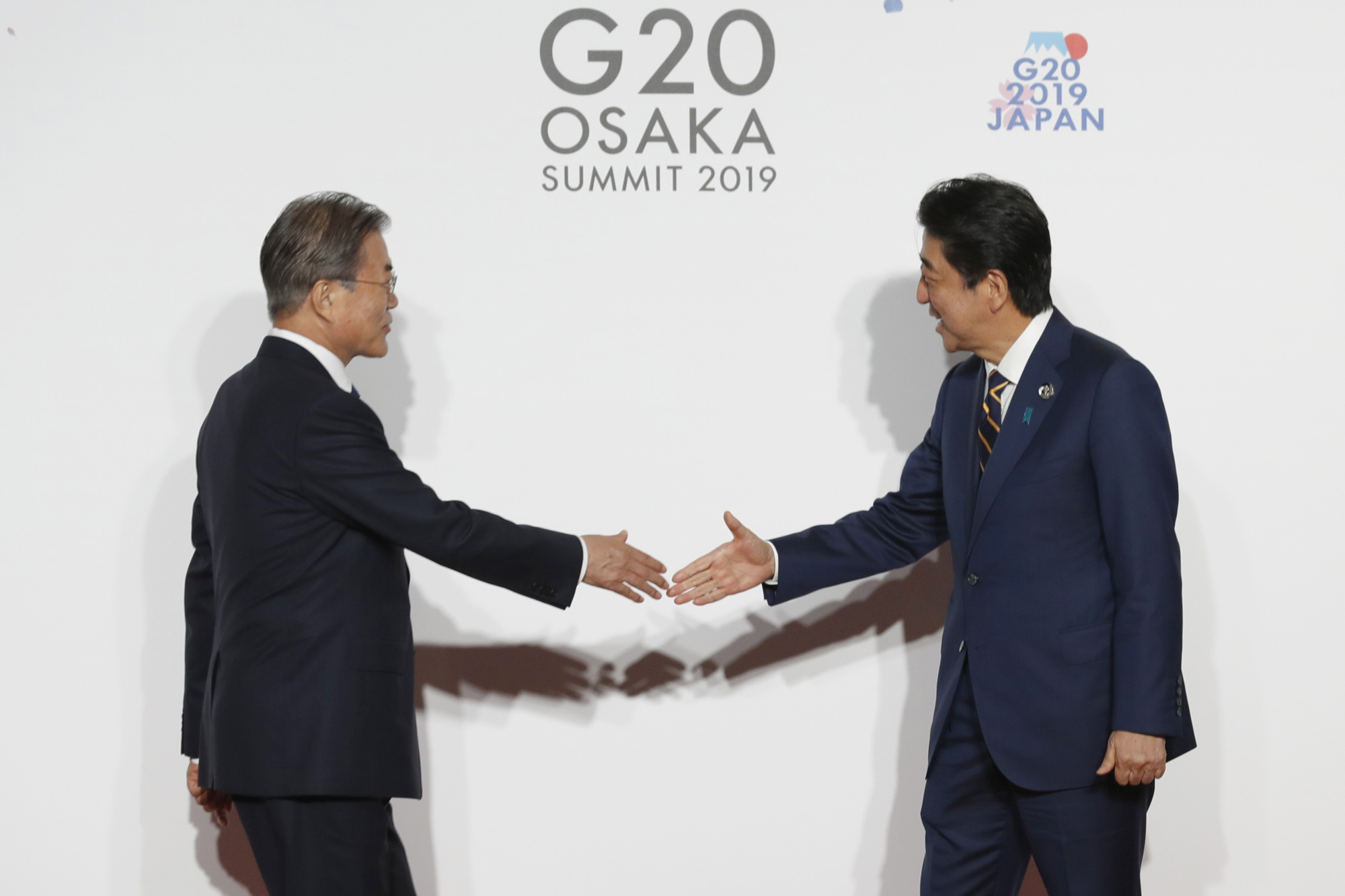There has been no shortage of commentary on the recent tensions between Japan and South Korea. The focus is justified, considering the importance of this relationship to the economy and security of Northeast Asia and abroad, but the rush to define exactly what is driving the conflict has led to a mischaracterization of the factors underwriting it. These tensions are layered and complex, so to declutter the current discourse for policymakers, negotiators and observers, I challenge two prevailing arguments.
The first is the claim that Prime Minister Shinzo Abe is taking actions against South Korea to secure domestic political capital; the second is that his administration has an inherently anti-Korean platform. On the contrary, there is simply no substantial political gain for Japan from escalatory measures against South Korea, and up until this year, the administration's yearslong policy has been to foster engagement with South Korea, not erode it. Those things both suggest that Japan's policy actions of late are not driven by anti-Korean sentiment as many have argued, but as practical responses — whether right or wrong — to recently developing situations between the two countries.
Starting first with the claim that there is a domestic political gain for Abe from escalating tensions against South Korea, there is none to be had. Case in point: The Upper House elections just took place in July and tensions with South Korea did not register as a voting issue. Turnout was a near-record low, and valence issues like the economy continued to monopolize voter priorities. Even if Abe was seeking to gain votes via a hard-line stance against South Korea — which again, he is not — there is not another major election in Japan scheduled until October 2021. In short, this is not about politicking for votes.

















With your current subscription plan you can comment on stories. However, before writing your first comment, please create a display name in the Profile section of your subscriber account page.